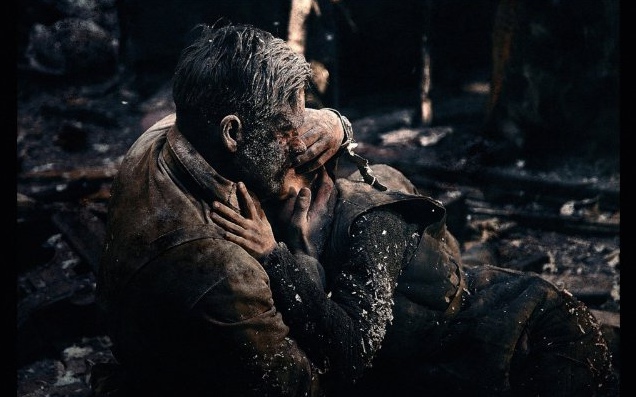CHICAGO – In anticipation of the scariest week of the year, HollywoodChicago.com launches its 2024 Movie Gifts series, which will suggest DVDs and collections for holiday giving.
Film Review: World War II Gets the ‘300’ Treatment in ‘Stalingrad’
CHICAGO – It does not take even a high school history class to understand the liberty used in “Stalingrad’s” presentation of its title siege. Boasted as the highest-grossing Russian movie ever, this IMAX 3D event is the country’s own adaptation of the hero glorification seen in “300”…complete with copious slow motion and overflowing testosterone. Made with great pride but also a somewhat goofy sense of war, “Stalingrad” is as irreverent with its filmmaking style as it is reverent to the country’s glory.
 Rating: 2.5/5.0 |
Framed as a bedtime story passed on from a Russian humanitarian worker to a German woman trapped after a Japanese tsunami, “Stalingrad” focuses its title event around the lives of a few World War II Russian soldiers, and the woman whose crumbling apartment building they are living in. The year is 1942, and the Germans are ready to take over the city of Stalingrad to begin a path to India in hopes of winning the war.
In this film, the soldiers are considered to be “five fathers” of the narrator, including the “professional hero” Kapitan Gromov (Pyotr Fyodorov), angelic Polyakov (Andrey Smolyakov), the silenced opera singer Nikiforov (Aleksey Barabash) and others. They are protecting Katya, (Mariya Skolnikova), who has been stayed in her home throughout the invasion of the Germans, and has grown tired of being afraid.
Meanwhile, a German army captain named Kan (“Dracula 3D’s” Thomas Kretschmann) becomes intimately involved with a Russian woman named Masha (Yanina Studilina), who reminds him of his German wife. As the war continues, though he has a barbaric relationship with her, he begins to feel more invested in her safety.
With its characters properly positioned to make the film’s poster echo that of “The Avengers,” “Stalingrad” is a film that draws its characters with very broad strokes. With each of the “five fathers” given a background story through the modern voiceover, the soldiers are written to be differentiated simply by their nicknames and specific traits, the alternative to donning them in different colored suits.
 Continue reading for Nick Allen’s full review of ”Stalingrad”
Continue reading for Nick Allen’s full review of ”Stalingrad”
Love During Wartime in ‘Stalingrad’
Photo credit: Columbia Pictures
 Continue reading for Nick Allen’s full review of ”Stalingrad”
Continue reading for Nick Allen’s full review of ”Stalingrad”

